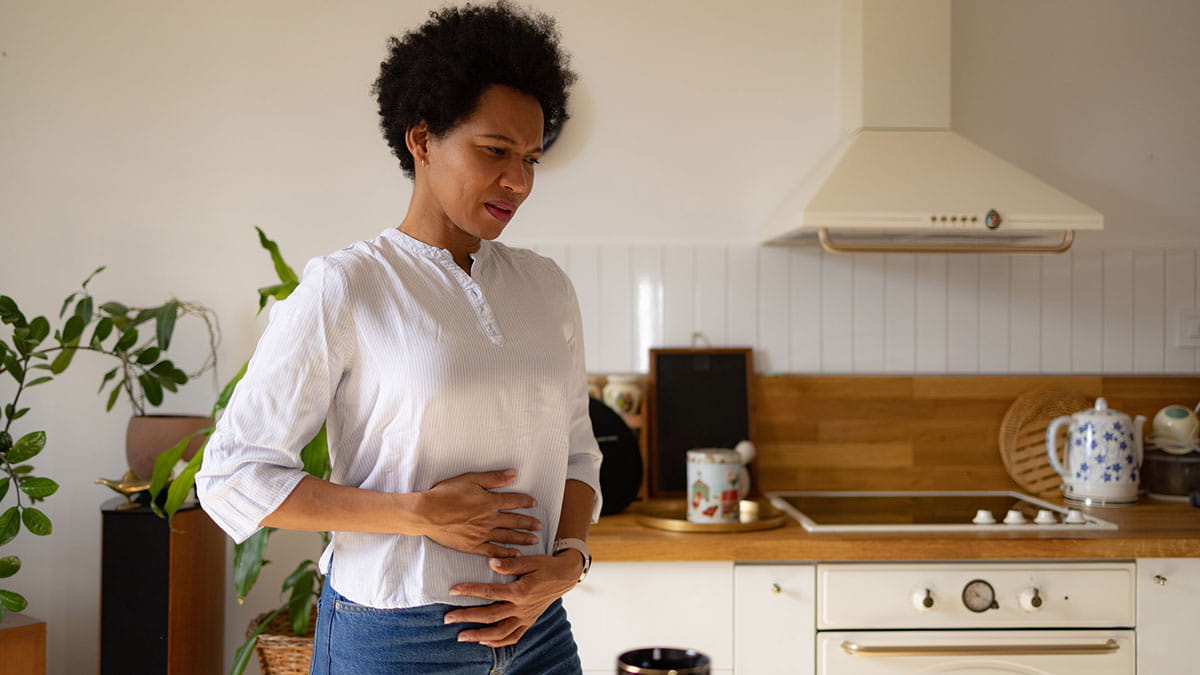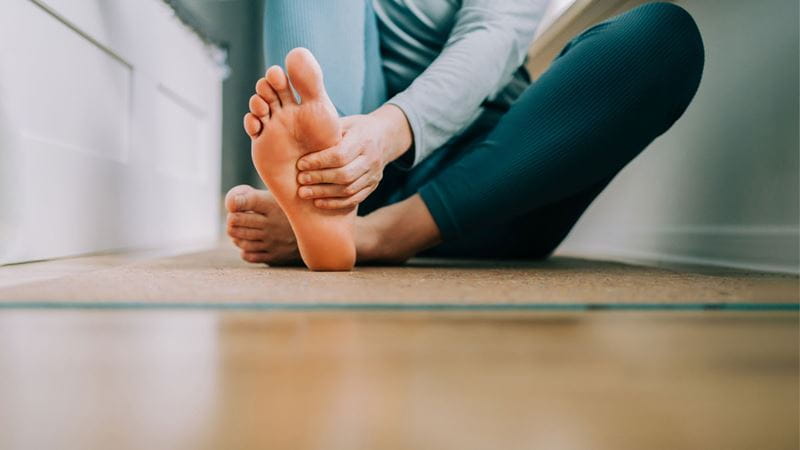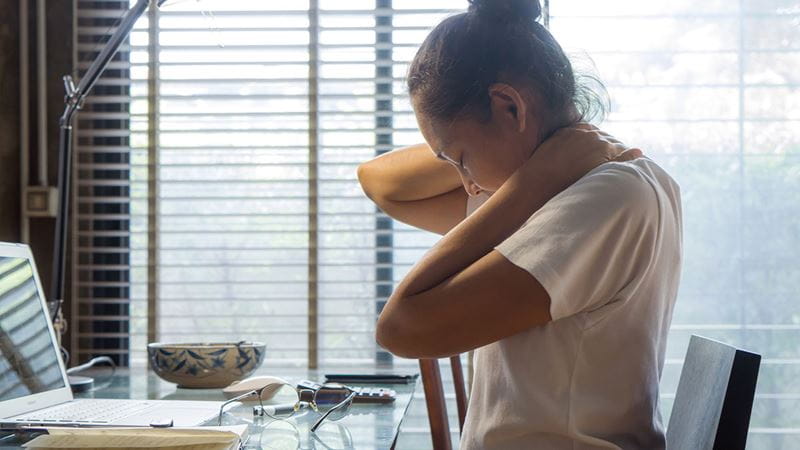Blog article
Constipation relief: What works, what doesn’t and when to see a doctor

Experiencing constipation? You’re not alone.
Constipation is incredibly common, affecting up to 1 in 5 adults.1 While it’s usually nothing to worry about, it can be frustrating when things aren’t moving, so to speak.
The good news? Most cases of constipation can be relieved with at home treatments, and a few lifestyle tweaks. In this blog, we explore constipation causes, how to fix it, and when it’s time to see your doctor.
What is constipation?
Constipation is a digestive disorder characterised by infrequent or difficult bowel movements, often defined as having fewer than three bowel movements a week. Common symptoms can include:2
- Difficulty passing stools
- Going longer than usual between bowel movements
- Passing hard or lumpy stools
- Straining to empty your bowels
- Only passing small amounts at a time
- Feeling like something is blocking your bowel, or that you haven’t completely emptied
Common causes of constipation
Constipation can happen for all kinds of reasons – some obvious, and some a little surprising. Here are some of the most common culprits:
Low fibre intake: If your diet’s low in fibre (found in fruits, vegetables, grains and legumes), it can slow everything down. Fibre adds bulk to your stool and helps it pass more easily through your digestive system.2
Too much fibre: Ironically, a sudden big increase in fibre (especially without drinking more water) can make constipation worse before it gets better.4
Dehydration: Water is essential for softening your stool. If you’re not drinking enough, your intestines absorb more water from your waste – making it harder and trickier to pass.2
Lack of exercise: Physical activity gets more than just your heart pumping – it helps stimulate your intestines too. Being sedentary can make constipation worse.2
Medication: Certain medicines are known for slowing things down, including:2, 3
- Oxycodone and other opioid painkillers
- Some antidepressants
- Iron supplements
- Calcium-channel blockers used to treat high blood pressure
- Anticholinergics, a type of medication found in treatments for conditions like asthma, urinary incontinence, and irritable bowel syndrome
Health conditions: Some medical conditions can increase your risk of constipation, either by affecting your digestion directly or by slowing the muscles in your bowel. These include:2
- Pregnancy
- Diabetes
- Thyroid disorders (such as an underactive thyroid)
- Neurological conditions like Parkinson’s disease or multiple sclerosis
- Depression
- Digestive disorders like irritable bowel syndrome (IBS), coeliac disease or diverticulitis
Protein powder: Protein powders can sometimes cause constipation, especially if they’re low in fibre and you’re not balancing them with enough water and plant foods.5
At home treatments for constipation
The good news? Most cases of constipation can be relieved with a few simple lifestyle tweaks at home. Here’s what can help:2
Drink more water: Adults need about 8-10 cups of fluid a day; pregnant or breastfeeding women need about 9 cups of fluid a day; and children need between 4-5 cups and teenagers need between 6-8 cups of fluid per day.
Add more fibre to your diet: Gradually include more fruits, vegetables, wholegrains and legumes to help keep things moving.
Get moving: Even light exercise, like a daily walk, can help stimulate your bowels.
Listen to your body: Try to go to the toilet as soon as you feel the urge – holding it in can make constipation worse.
Manage stress: Relaxation techniques, like deep breathing or mindfulness, can help support healthy digestion.
Over the counter treatments for constipation
If lifestyle changes aren’t enough, your doctor or pharmacist might recommend an over-the-counter laxative, such as:2
Bulk-forming laxatives (fibre supplements): Products like psyllium, ispaghula and sterculia add bulk to your stool, helping it pass more easily.
Osmotic laxatives: Options like lactulose, sorbitol, macrogol 3350 and magnesium salts work by drawing water into the bowel to soften your stool.
Stimulant laxatives: Medicines like senna and bisacodyl help speed up movement in the bowel.
Stool softeners: Docusate helps soften the stool, making it easier to pass.
Different types of laxatives work in different ways, so it’s important to choose the right option for your needs and use them as directed. It’s always best to use laxatives under the guidance of a doctor or pharmacist as overuse can lead to dependency and may make constipation harder to manage over time.
When constipation might be a sign of something more serious
When constipation drags on, it’s understandable to think that booking in for a colonoscopy might be the safest move. But evidence shows it’s not always the best first step.
Studies suggest that people under 50 with long-term constipation – without any other symptoms – are actually less likely to have polyps than people without constipation.⁷ In other words, if constipation is your only concern, a colonoscopy is unlikely to uncover anything serious in people less than 50 years of age.
Since colonoscopies do carry some risks – like bleeding, sedation complications, and, in rare cases, a tear in the colon – it’s important to weigh up the benefits before having one unnecessarily.⁸
That said, constipation combined with other symptoms can be a sign that something more serious is going on. You should see your GP if you notice:1, 2, 9
- Blood in your stools
- Ongoing stomach pain or bloating
- Unexplained weight loss
- A sudden change in your bowel habits lasting more than six weeks
- Diarrhoea
- Anaemia (low iron levels)
- A history of inflammatory bowel disease
- A lump in the abdomen or rectum
- A positive bowel cancer screening test
- A family history of bowel cancer
Your GP can help work out what’s happening – and recommend any next steps if needed.
Quick note: appendicitis vs constipation Appendicitis can sometimes be confused with constipation early on. If you have sudden, sharp pain (especially starting around your belly button and moving to the lower right side), nausea, vomiting, or fever, it’s important to seek urgent medical care.
How HBF can help
If you do need a colonoscopy, HBF is here to help. Log in to myHBF or call 133423 to check your level of cover and find a specialist using our Find a Provider tool.


